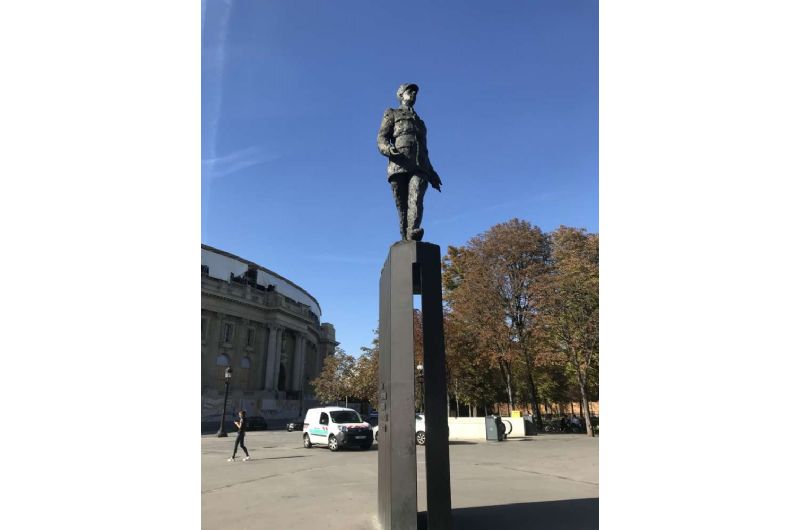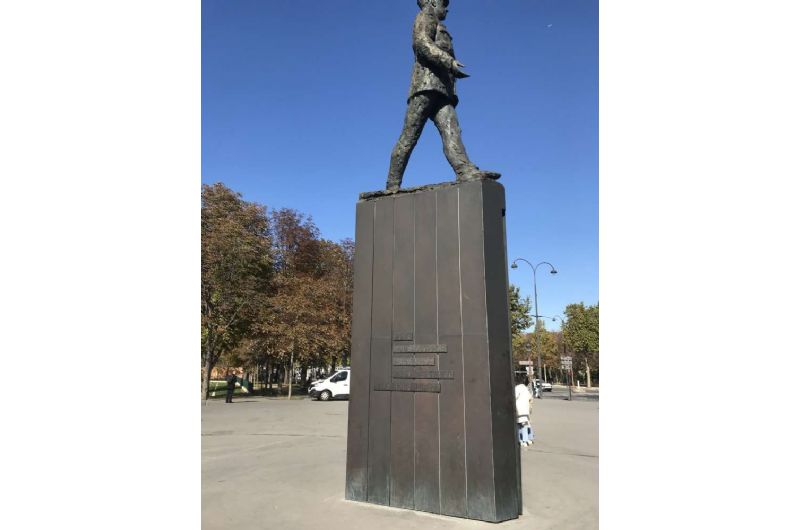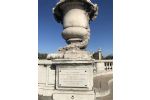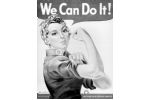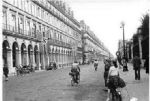General De Gaulle
Statue of General De Gaulle located opposite the Grand Palais
Reared in a culture of national grandeur, Charles de Gaulle chose a career as an officer. During the First World War, he was wounded and taken prisoner. He subsequently served and published in the entourage of Philippe Pétain, advocating to political figures the use of armored divisions in contemporary warfare. In May 1940, as a colonel, he was placed in command of an armored division and led several counter-attacks during the Battle of France; he was subsequently promoted to temporary brigadier general. During the ensuing exodus, he is Under-Secretary of State for War and National Defense in the Reynaud government.
Rejecting the armistice requested by Pétain from Nazi Germany, he launches from London, on the BBC, the "appel du 18 Juin", inciting the French people to resist and join the Free French Forces. Sentenced to death in absentia and stripped of French nationality by the Vichy regime, he intends to embody France's legitimacy and be recognized as a power by the Allies. Controlling only a few colonies, but recognized by the Resistance, he maintained a cold relationship with Franklin Roosevelt, but generally enjoyed the support of Winston Churchill. In 1943, he merged the France libre into the Comité français de libération nationale, eventually taking over its leadership. He led the country from the Liberation onwards; favorable to a strong executive power, he opposed parliamentary projects and resigned in 1946.
Source Wikipedia
Photo credit and contribution Sandrine LR
Source Wikipedia
Photo credit and contribution Sandrine LR

